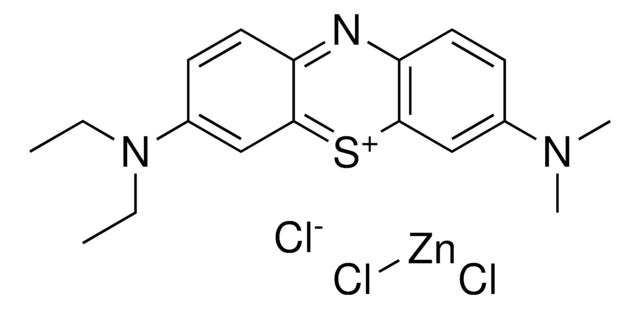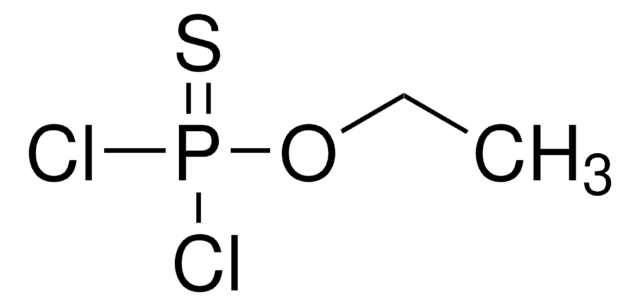861340
Thionin acetate salt
certified by the Biological Stain Commission, Dye content ≥85 %
Sinónimos:
3,7-Diamino-5-phenothiazinium acetate, Lauth’s violet
About This Item
Productos recomendados
grade
certified by the Biological Stain Commission
Quality Level
form
powder
composition
Dye content, ≥85%
λmax
598 nm
application(s)
diagnostic assay manufacturing
hematology
histology
storage temp.
room temp
SMILES string
CC([O-])=O.Nc1ccc2nc3ccc(N)cc3[s+]c2c1
InChI
1S/C12H10N3S.C2H4O2/c13-7-1-3-9-11(5-7)16-12-6-8(14)2-4-10(12)15-9;1-2(3)4/h1-6H,13-14H2;1H3,(H,3,4)/q+1;/p-1
InChI key
OWXBIRAFHWASMS-UHFFFAOYSA-M
¿Está buscando productos similares? Visita Guía de comparación de productos
General description
Application
Storage Class
13 - Non Combustible Solids
wgk_germany
WGK 3
flash_point_f
Not applicable
flash_point_c
Not applicable
ppe
Eyeshields, Gloves, type N95 (US)
Elija entre una de las versiones más recientes:
¿Ya tiene este producto?
Encuentre la documentación para los productos que ha comprado recientemente en la Biblioteca de documentos.
Los clientes también vieron
Nuestro equipo de científicos tiene experiencia en todas las áreas de investigación: Ciencias de la vida, Ciencia de los materiales, Síntesis química, Cromatografía, Analítica y muchas otras.
Póngase en contacto con el Servicio técnico













